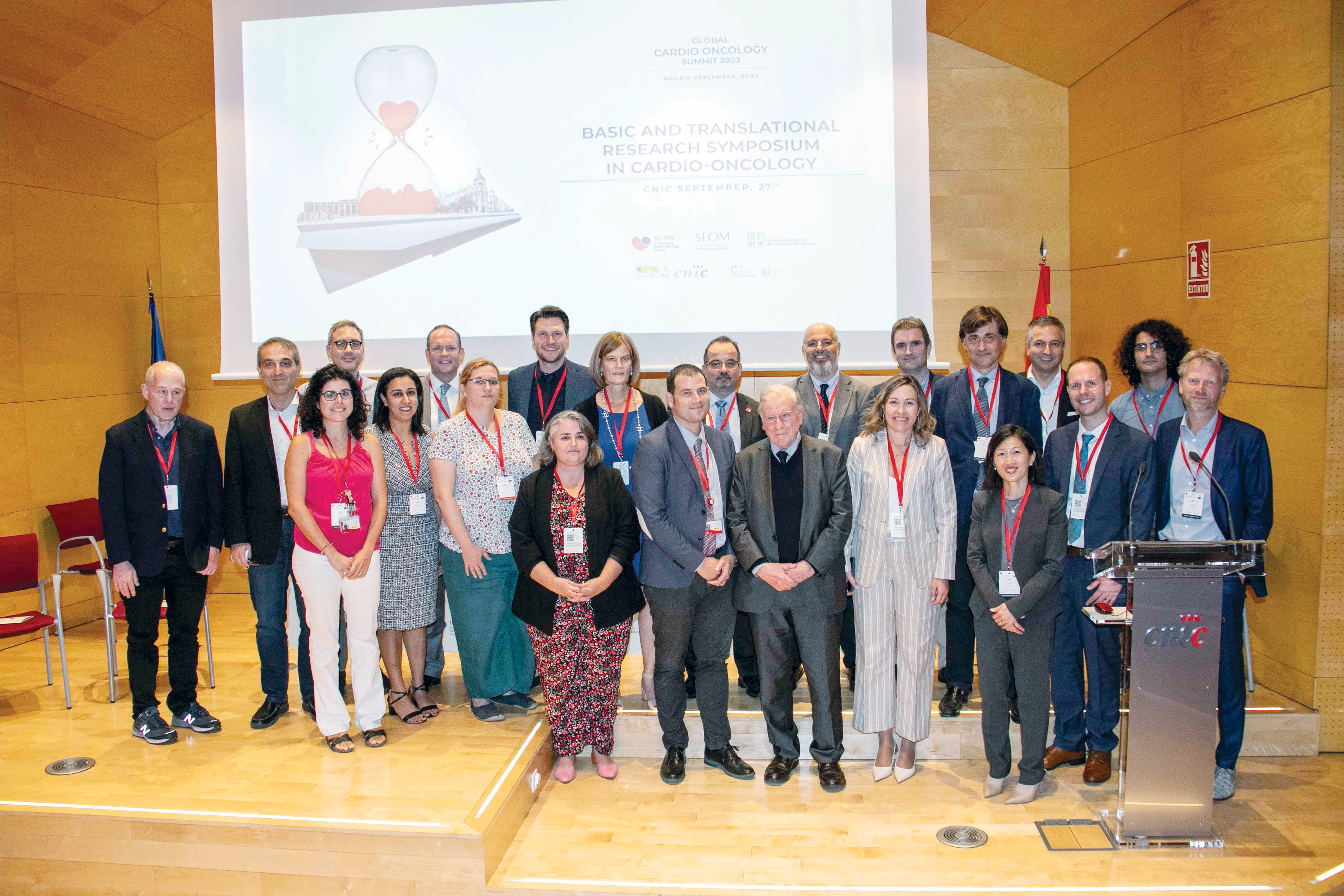More attention is being paid to the topic of cardio-oncology, where the focus is on patients with cancer who may be at risk for developing cardiovascular diseases as a result of anticancer treatments. However, a less well-known but related clinical area is now garnering some interest. Referred to as “reverse cardio-oncology,” its focus is on patients with existing cardiovascular disorders who may develop or be at risk for developing a subsequent malignancy. Although cardiovascular disease and cancer have long been viewed as two distinct disease entities, studies are needed to better understand their shared pathophysiologic pathways and potentially reciprocal relationship.1 At the 2023 Global Cardio-Oncology Summit (GCOS) in Madrid, a session was devoted to reverse cardio-oncology.
Cancer and Heart Failure
“There is a reciprocal relation between heart failure and cancer,” declared Rudolf A. de Boer, MD, PhD, of the Department of Cardiology, Erasmus MC Rotterdam, the Netherlands, at GCOS.2 Multiple registries around the world, he added, have provided evidence that incident cancer is more prevalent in patients with heart failure.

Rudolf A. de Boer, MD, PhD
For instance, a Danish registry of more than 9,000 patients with verified heart failure without a prior diagnosis of cancer revealed 975 diagnoses of cancer in the heart failure cohort.3 There was an increased hazard ratio for several major types of cancer, including colorectal, breast, and urogenital cancer, as well as malignant lymphoma. Similar findings were reported in a larger Italian study.4 “There is a clear increased hazard ratio for the risk of incident cancer,” stated Dr. de Boer, “and it was particularly strong in younger patients (age < 70).”
Circumstantial evidence was provided by Italian researchers who demonstrated that patients with a positive stress echocardiography have a higher likelihood of new-onset cancer in more than 4,500 patients.5 All patients were free of cancer at index stress echocardiography and were followed for approximately 11 years. Stress echocardiography was found to be an independent predictor of cardiovascular mortality (as expected, hazard ratio [HR] = 1.18) but also of cancer (not expected, cause-specific HR = 1.19). “There appears to be a connection between concealed cardiovascular disease and incident cancer,” stated Dr. de Boer. According to a recent meta-analysis summarizing all published data until now,6 heart failure was found to be associated with a 43% increased risk for incident cancer in individuals with prevalent heart failure, Dr. de Boer commented.
Dr. de Boer then posed this question: Do patients with heart failure die of cancer? Over the past 20 years or so, this scenario has changed. “In contemporary heart failure cohorts, the mode of death more often is noncardiovascular than cardiovascular,” he said, suggesting the reason might be better treatment for heart failure. In randomized clinical trials, “the majority [of these deaths] are explained by cancer—not renal diseases or chronic obstructive pulmonary disease.”
Bidirectional Connection
To explain the bidirectional connection between cancer and heart failure, Dr. de Boer said multiple factors are at play. First, both cancer and heart failure have shared risk factors, such as smoking, obesity, a sedentary lifestyle, and dietary issues. Second, there may be shared mechanisms, such as inflammation, clonal hematopoiesis of indeterminate potential, angiogenesis, or changes in the extracellular environment and microbiome.7
In addition, several groups, including Dr. de Boer’s, have hypothesized that the state of heart failure may be associated with an endocrine systemic disorder, which might propel tumor growth. “There have been reports on colorectal, breast, and lung cancers that circulating and inflammatory factors might be the intermediates between heart failure and cancer,” he stated.

Global Cardio-Oncology Summit 2023, Madrid, September 27–29, 2023. Faculty photo from the Basic and Translational Research Symposium in Cardio-Oncology.
In support of this, the randomized CANTOS trial centered on inflammation as a possible key driver for heart failure and cancer.8 This study reached its primary endpoint, with 150 mg of the interleukin-1b antibody canakinumab every 3 months leading to a significantly lower rate of recurrent cardiovascular events than placebo. “But this regimen also drove down the risk for incident lung cancer,” Dr. de Boer added.
In closing, Dr. de Boer noted there are no clear recommendations yet for alternate treatment in patients with heart failure or cardiovascular disease. However, he added, cancer is a common and lethal comorbidity of these cardiac diseases. For individuals who have heart failure or cardiovascular disease, Dr. de Boer recommended participation in screening programs (eg, for colorectal, breast, and cervical cancers). In addition, “anemia, which is common with heart failure, may also signify malignant disease, so we always need to think about that,” he concluded.
DISCLOSURE: Dr. de Boer has received institutional research grants from AstraZeneca, Abbott, Boehringer Ingelheim, Cardior GmbH, Ionis Pharmaceuticals, Novartis, Novo Nordisk, and Roche and has received personal speaker fees from AstraZeneca, Abbott, Bayer, Bristol Myers Squibb, Novo Nordisk, and Roche.
REFERENCES
1. Aboumsallem JP, Moslehi J, de Boer RA: Reverse cardio-oncology: Cancer development in patients with cardiovascular disease. J Am Heart Assoc 9:e013754, 2020.
2. de Boer R: Cancer development in patients with heart failure. 2023 Global Cardio-Oncology Summit. Presented September 28, 2023.
3. Banke A, Schou M, Videbaek L, et al: Incidence of cancer in patients with chronic heart failure: A long-term follow-up study. Eur J Heart Fail 18:260-266, 2016.
4. Bertero E, Robusto F, Rulli E, et al: Cancer incidence and mortality according to preexisting heart failure in a community-based cohort. JACC CardioOncol 4:98-109, 2022.
5. Carpeggiani C, Landi P, Michelassi C, et al: Stress echocardiography positivity predicts cancer death. J Am Heart Assoc 6:e007104, 2017.
6. Jaiswal V, Ang SP, Agrawal V, et al: Association between heart failure and the incidence of cancer: A systematic review and meta-analysis. Eur Heart J Open 3:oead073, 2023.
7. Lau ES, Paniagua SM, Liu E, et al: Cardiovascular risk factors are associated with future cancer. JACC CardioOncol 3:48-58, 2021.
8. Ridker PM, Everett BM, Thuren T, et al: Antiinflammatory therapy with canakinumab for atherosclerotic disease. N Engl J Med 377:1119-1131, 2017.

